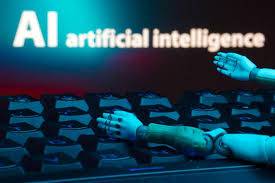The Dark Side of AI: How Artificial Intelligence is Worsening Environmental Disasters, Injustices, and Power Imbalances
Artificial intelligence (AI) has been hailed as a revolutionary technology that can transform industries, improve lives, and drive economic growth. However, a growing body of research suggests that AI is also accelerating environmental disasters, deepening injustices, and exacerbating the concentration of power.
One of the most significant environmental impacts of AI is its contribution to greenhouse gas emissions. The training of large AI models requires massive amounts of computational power, which is typically generated by burning fossil fuels. As a result, the carbon footprint of AI is substantial, and it is growing rapidly.
According to a recent study, the training of a single large AI model can generate up to 284,000 kilograms of carbon dioxide equivalent. This is roughly the same amount of emissions as a round-trip flight from New York to London.
In addition to its environmental impacts, AI is also exacerbating social injustices. Many AI systems are trained on biased data, which can result in discriminatory outcomes. For example, facial recognition systems have been shown to be less accurate for people with darker skin tones, which can lead to false arrests and other negative consequences.
AI is also being used to automate decision-making processes, which can further entrench existing power imbalances. For example, AI-powered systems are being used to determine who is eligible for credit, housing, and other essential services. However, these systems are often opaque and unaccountable, which can result in unfair outcomes.
Furthermore, AI is concentrating power in the hands of a few large corporations and governments. These entities have access to vast amounts of data and computational resources, which enables them to develop and deploy AI systems that are far more advanced than those available to smaller organizations.
This concentration of power is likely to exacerbate existing social and economic inequalities. For example, large corporations may use AI to automate jobs, which can lead to widespread unemployment and economic disruption. Similarly, governments may use AI to surveil and control their citizens, which can erode civil liberties and undermine democratic institutions.
The negative impacts of AI are not inevitable, and there are steps that can be taken to mitigate them. One of the most important is to develop AI systems that are transparent, accountable, and fair.
This requires a fundamental shift in how AI is developed and deployed. Rather than prioritizing efficiency and profit, developers must prioritize social and environmental responsibility. This means involving diverse stakeholders in the development process, ensuring that AI systems are transparent and explainable, and implementing safeguards to prevent bias and discrimination.
Governments and regulatory agencies also have a critical role to play in ensuring that AI is developed and deployed responsibly. This requires establishing clear guidelines and regulations for AI development, as well as providing funding and support for research into the social and environmental impacts of AI.
Artificial intelligence has the potential to bring about significant benefits, but it also poses significant risks. As AI continues to evolve and become more pervasive, it is essential that we prioritize responsible AI development and deployment.
This requires a fundamental shift in how AI is developed and deployed, as well as a commitment to transparency, accountability, and fairness. By working together, we can ensure that AI is developed and deployed in ways that benefit society and the environment, rather than exacerbating existing problems.


